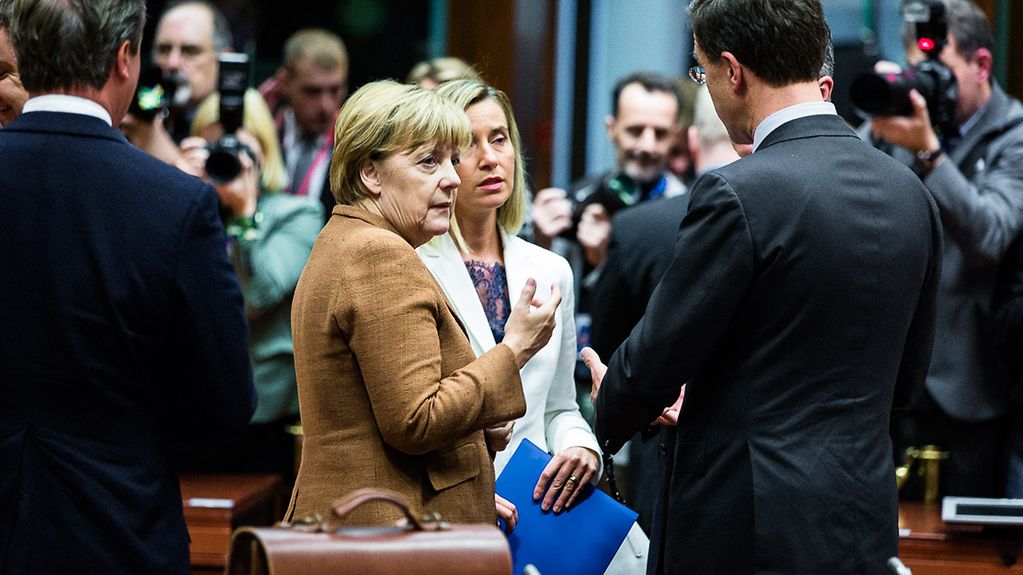Extraordinary EU meeting on refugees
The EU aims to put in place "hotspots" by November, and to provide significantly more financial assistance for aid programmes targeting refugee camps in the countries bordering on Syria.

The heads of state and government also agreed to step up dialogue with Turkey
Photo: Bundesregierung/Denzel
These are only two of the outcomes of the extraordinary meeting of EU heads of state and government in Brussels. The Chancellor reported that discussions had been very constructive.
Following the informal meeting of the heads of state and government of European Union member countries on Wednesday evening, Chancellor Angela Merkel declared that it had been a very productive exchange. Discussions had been conducted "in the spirit of wanting to tackle the challenges ahead together".
Hotspots to be in place by November
No later than November 2015 the planned registration centres, also known as hotspots, are to be in place in Italy and Greece, agreed the 28 heads of state and government. With the help of these registration centres, the relocation of refugees across Europe can be better organised. The Chancellor spoke of a precise outcome. The agreement on the hotspots supplements the decisions taken by the EU home affairs and justice ministers on Tuesday.
On Tuesday, the EU Justice and Home Affairs Council decided to relocate 120,000 asylum-seekers, primarily from Italy and Greece, throughout the EU. The decision was not unanimous, but a clear majority voted in favour. Within the hotspots, the European Asylum Support Office (EASO), the European Agency for the Management of Operational Cooperation ant the External Borders of the Member States of the European Union (Frontex) and Europol are to cooperate with frontline EU member states. The goal is to screen arriving migrants swiftly, register them and take their fingerprints.
More cash for international programmes in the region
International aid programmes for refugees in countries around Syria are to receive at least another billion euros. These include UNHCR and UN World Food Programme measures. Additional assistance will also be provided for countries like Jordan, Lebanon and Turkey to help them cope with the refugee crisis. Before the meeting, Angela Merkel sais that in the past Europe had failed to realise that international programmes for the refugee camps in the countries around Syria were under-funded.
"We must become more active on the foreign-policy front," said the Chancellor. EU heads of state and government have now agreed to support a UN-led international process to bring peace to Syria. The EU also intends to help form a government of national unity in Libya, because, as the Chancellor said after the meeting, "In the final analysis we can only really fight the causes of migration if we can resolve these international crises."
Stepping up dialogue with Turkey
The heads of state and government also agreed to step up dialogue with Turkey. Cooperation with Turkey, which has taken in a huge number of refugees, is to be extended.
In order to better control the external borders of the EU, Europe intends to provide additional funds for the border agency Frontex, the European Asylum Support Office (EASO) and Europol, as well as more human resources and equipment from member states. The new EU Emergency Trust Fund for Africa is to receive more funding – one of the steps to prepare for the EU-Africa Summit to be held on 11 and 12 November in Malta.